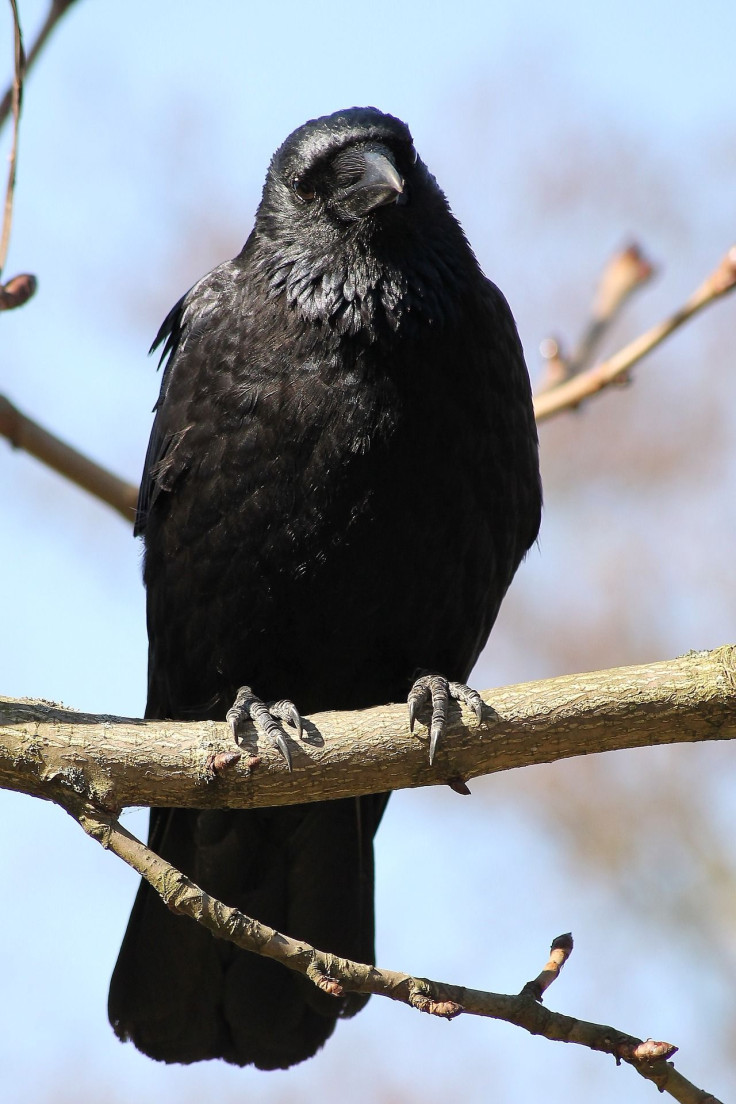Crows In Urban America Have High Blood Cholesterol Levels, Blame Fast Food

With urban jungles popping up everywhere, the animals that fail to adapt also fall out of the rat race. The animals that survive are usually the ones that capitalize on human food waste.
A study published in The Condor: Ornithological Applications suggests that like their human counterparts, American crows might be getting high blood cholesterol from discarded foods, such as cheeseburgers, compared to their rural relatives.
Andrea Townsend of Hamilton College and her colleagues analyzed the blood samples of 140 crow nestlings following an urban-to-rural gradient in California, returning to examine their survival rates after they fledged.
It was noted that the more urban the environment, the higher the cholesterol of the resident crow nestlings. To directly assess the impact of human food, the researchers routinely provided a population of rural New York crow nestlings with McDonald’s cheeseburgers and analyzed their blood cholesterol levels alongside those of neighboring crows that had to forage for themselves. As one would expect, the former showed higher levels of blood cholesterol in test results, corroborating the results from urban crows in California.
On the contrary, it is uncertain whether all that cholesterol negatively affects the crows. Between rural and urban crows, the latter experiences lower survival rates in the first three years of life, but not due to cholesterol. In fact, nestlings with higher cholesterol surprisingly rated better on body condition analyses.
"Despite all the bad press that it gets, cholesterol has benefits and serves a lot of essential functions," says Townsend. "It's an important part of our cell membranes and a component of some crucial hormones. We know that excessive cholesterol causes disease in humans, but we don't know what level would be 'excessive' in a wild bird."
At the end of the day, Townsend still would not advise people to start feeding the birds with cheeseburgers or other processed foods. "Wild birds haven't evolved to eat processed food, and it might have negative consequences that we didn't measure, or that will only show up over longer periods of time," she said.
"Feeding wild birds can be a great way to connect with nature, and it can be a refreshing change to think that we're doing something that helps animals out. At the same time, though, I do worry that some of the foods that humans give to wild animals, and living in an urban environment in general, might not be good for their health," Townsend said.
© Copyright IBTimes 2025. All rights reserved.





















